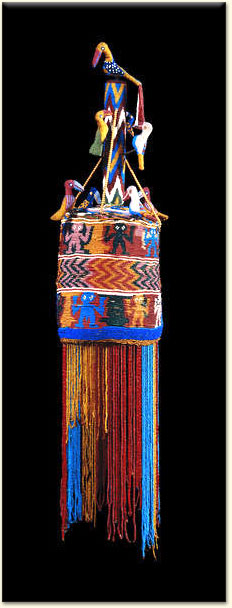Monday, June 15, 2015
Rational Fundamentalism
All fundamentalist religious traditions are attempts at creating a religion devoid of feeling and emotion, and establishing "rational" religion, no matter how odd and "irrational" such a venture may seem to others.
This tendency shares in the psychology of judicial "originalist" in the USA, who seek the meaning of the Constitution in what they consider to be the views and interpretations of the Founding Fathers.
Although these movements may attack speculative philosophies and theologies of their "liberal" opponents, in reality they are based on philosophy, on words, the "logos", the "kalam", the web of meaning and language. They find an original basis expressed in some linguistic form - usually a scripture or ancient document of law - and then they come to the crux of the matter, which is asserting (1) that the document is always true, and (2) that the interpretation of the document by "right-minded" individuals is always true and incorrigible.
To express these views and to persuade others of the justice of their cause, they write and orate and argue; they spin a new web of philosophy, logic, and often invective.
These movements must be viewed in time, for they make no sense if they lack sufficient time between the era of the original document or scripture and the present. There must exist a certain amount of time to allow differing opinions to form, and it is these opinions and those who support them that the fundamentalists fight.
In other words, Fundamentalism is a historical development, and an attempt to re-create the past, which process necessarily involves imagining what the past was actually like: creating a virtual reality of the past and placing it within the present.
This is a complex rational process which seeks to provide a logical basis for religion or law, and in the case of religion, it rejects the foundations of feeling and emotion which underlie man's approach to the Holy, turning rather to credos and formulae of a limited and restricted nature.
A limiting and restricting philosophy is still speculative, and as such fundamentalism is that which ignores the mysterium and the tremendum of the untamed universe, a universe which seems to dance freely like unruly Bacchantes when seen through the glasses of mysteries, powers, feelings, and emotions.
We have forgot the history of the American Revivalist movements of the 18th and 19th centuries. These religious phenomena were often looked down on by European scholars, for the Revivalist exuberance was anarchic in its overflowing emotion.
The American Revivals - which have faded from our jaded souls - were a dance for joy in the wilderness!
If Church and State had not been separated by the Founding Fathers, it is very likely that certain States may have used force against the Revivals, as in Europe and other countries new ideas of religion were not allowed to grow too big or were wiped out.
We live in the Era of Doubt, and we seek that which is totally Other, but we haven't a clue, so our doubt grows and grows.
Fundamentalism seeks to banish Doubt by killing enthusiasm, restricting amazement, and destroying wonder.
--
Labels:
philosophy,
religion
Subscribe to:
Post Comments (Atom)


















No comments:
Post a Comment